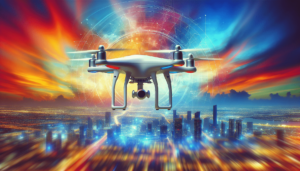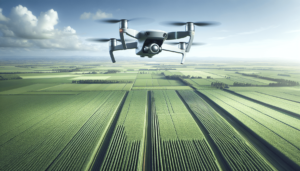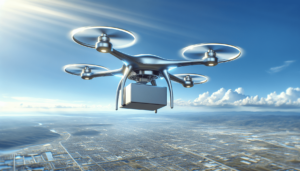Have you ever wondered how technology has revolutionized the way we perceive properties today? The real estate industry is no stranger to innovation, and when it comes to showcasing properties, drones have become more than just a novelty. They are now an essential tool for creating compelling property listings.
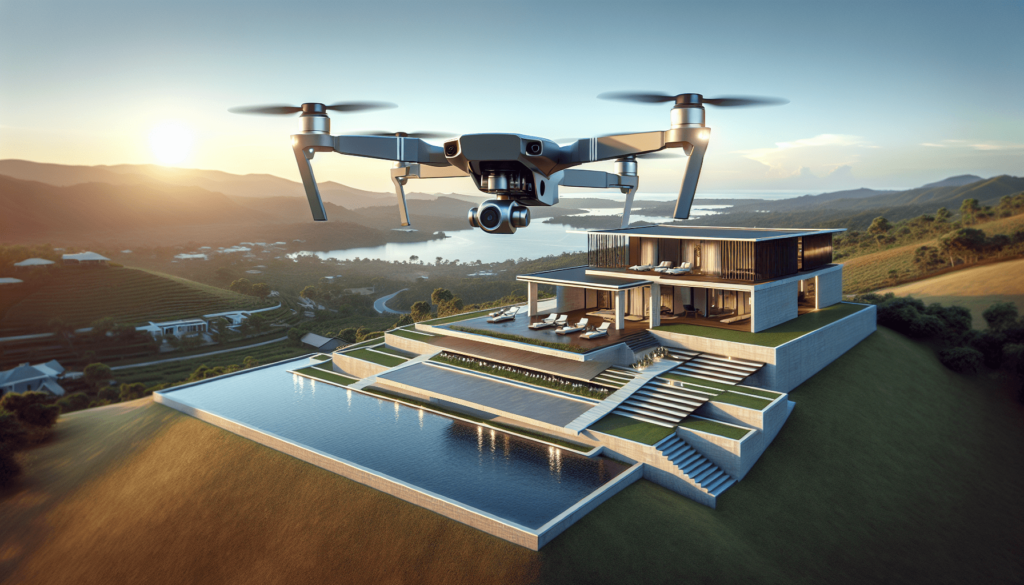
The Rise of Drones in Real Estate
As a real estate professional, staying ahead of industry trends is essential. The introduction of drones in the real estate sector has been transformative, offering a fresh perspective that appeals to both buyers and sellers. Drones provide high-quality aerial imagery that showcases properties in a way traditional photography cannot.
A New Perspective
Traditionally, real estate photos were limited to ground-level views. The advent of drones allows for aerial views that capture the full extent of a property and its surroundings. This perspective not only highlights property features but also offers a view of the neighborhood, proximity to parks, or the appeal of a nearby body of water.
The Impact of Visual Storytelling
With drones, it isn’t just about the property; it’s about painting the whole picture. Aerial shots tell a story, providing potential buyers a sense of space and lifestyle, alluring them with the ‘bigger picture’. Visual storytelling is powerful in the real estate market, and drones make it possible to achieve this with heightened creativity.
Benefits of Using Drones in Real Estate
The use of drones in real estate goes beyond impressive visuals. There are several compelling reasons why they are becoming indispensable tools for property listings.
Enhanced Marketing Efforts
Drones can take breathtaking photos and videos that make listings more attractive. With high-resolution images and dynamic videos, properties can stand out in a saturated market. Here’s a simple table to highlight the contrast between traditional and drone photography:
| Feature | Traditional Photography | Drone Photography |
|---|---|---|
| Perspective | Limited to ground level | Aerial views providing context |
| Coverage | Restricted angles | 360-degree property coverage |
| Visual appeal | Static images | Engaging, dynamic content |
Cost-Effectiveness
In the long run, using drones can be cost-effective. The investment in drone technology quickly pays off as properties sell faster and often at higher prices due to the enhanced visual marketing. The cost of a drone operator is also becoming more economical as the technology becomes more mainstream.
Time-Saving
Property negotiations and viewings can be expedited through drone footage, which can provide a virtual tour experience. Clients can review a property’s visual content before deciding to visit in person, saving time for both buyers and realtors.
Access to Hard-to-Reach Areas
Drones can access areas that are challenging for traditional photographers, such as rooftops or vast acreage, providing comprehensive coverage of the entire property and ensuring all aspects are highlighted effectively.
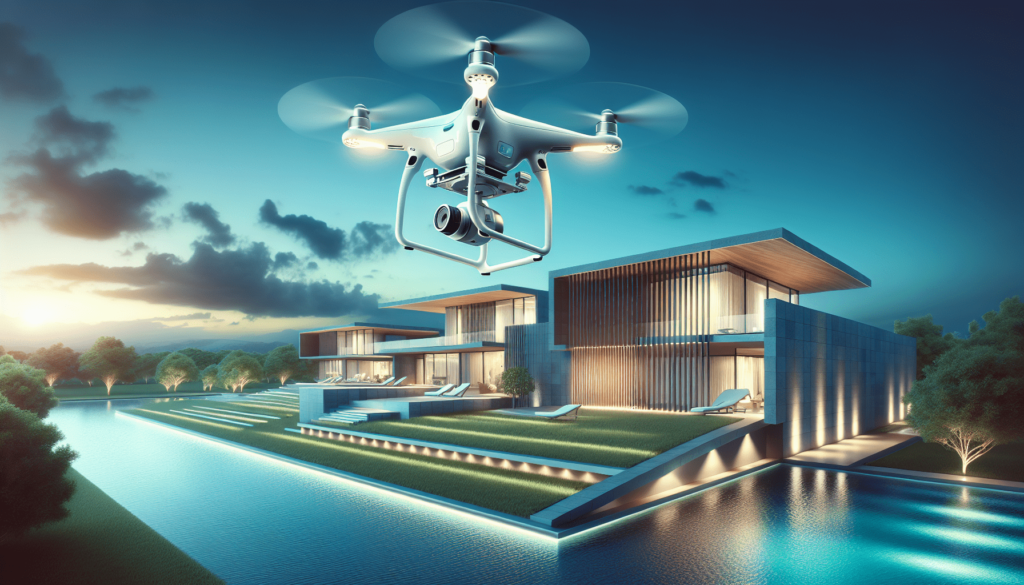
How Drones Enhance Property Listings
Understanding the benefits drones bring is one thing, but how exactly do they enhance individual listings?
A Broader Market Reach
With high-quality visuals that stand out, properties have more potential to reach a broader audience. Listings appear more in tune with modern buyers, who expect a certain level of innovation in the content they consume.
Quick Adaptation to Market Trends
By using drone technology, real estate professionals can adapt to the latest marketing trends, appealing to tech-savvy consumers who appreciate modern and immersive experiences when browsing listings.
Creating Virtual Tours
Drones facilitate the creation of virtual tours, a trend that has gained immense popularity, especially in times when physical distancing measures have limited in-person showings. Creating these tours gives potential buyers comprehensive insight into the property, further engaging them in the buying process.
Legal Considerations and Best Practices
As with all technology, the use of drones in real estate is subject to regulations. It’s crucial for realtors utilizing this tool to be aware of applicable laws and best practices.
Regulatory Compliance
In most jurisdictions, commercial use of drones requires specific permissions or licenses. Realtors must ensure they or their drone operators comply with the Federal Aviation Administration (FAA) regulations and any local or state laws that govern drone usage.
Privacy Concerns
Privacy is a major consideration. Drones should not invade the personal space of neighboring properties or infringe on the privacy of individuals otherwise unconnected to the real estate transaction. It is vital to use a licensed operator familiar with these nuances to avoid potential legal issues.
Insurance Requirements
Liability insurance is essential when using drones. The coverage protects against accidents or damage that might occur during drone operations. This is a precaution that both protects your business and reassures clients.
Preparing Your Real Estate Business for Drone Integration
How do you integrate drone technology smoothly into your real estate business? Understanding the practical steps can ensure a successful implementation.
Evaluating the Costs
Investing in drones requires an initial outlay, whether purchasing equipment or hiring professional drone services. Assess your budget and anticipate the potential increase in listing appeal to see how drone usage may streamline your operations and improve your market position.
Training and Certification
If choosing to operate drones personally, rather than hiring services, pursuing professional training and obtaining certification is necessary. This ensures the safe and legally compliant operation of drones, and ultimately ensures you can deliver high-quality services to your clients.
Partnering with Professionals
Many real estate professionals find partnering with experienced drone operators or specialized companies more efficient. They offer expertise that ensures the footage is captured creatively and in compliance with legal standards.
Addressing Potential Challenges
It’s important to anticipate and manage the challenges presented by the introduction of drones in real estate.
Managing Technical Issues
Technical glitches are a potential obstacle. Whether it’s understanding various drone models or mastering the software used for editing the footage, anticipating and addressing these issues can prevent unnecessary frustration and delays.
Weather Dependence
Drones are highly dependent on weather conditions. Windy or rainy weather can delay shooting schedules. Planning for these contingencies is critical to maintaining a smooth operation.
Looking Forward: The Future of Drones in Real Estate
As I project forward, how might drone technology further evolve within real estate?
Integration with AI
The next frontier for drones in real estate could be their integration with artificial intelligence. Imagine AI-driven drones that can autonomously capture footage, analyze property features, and even draft initial listings.
Expanding Capabilities
With technological advancements, drones could soon be equipped with more sensors for thermal imaging or structural evaluation. This would take property assessments to a new level, allowing realtors to offer even more valuable insights to clients.
The Rise of Smart Cities
In the context of urban development, drones might play a pivotal role in the growth of smart cities. They could be used to survey land, assess project feasibility, and monitor construction progress, thereby integrating real estate marketing with broader urban planning initiatives.
Conclusion
The incorporation of drones into real estate is not just a passing trend but a significant evolution in how properties are marketed and sold. By offering unique perspectives, enhancing listings, and streamlining processes, drones are shifting the landscape of real estate marketing toward a future where technology and creativity play central roles. Whether you’re a seasoned real estate professional or just entering the field, embracing drones could provide the competitive edge needed in today’s dynamic market. As with any technological advancement, the key to success is staying informed, adhering to best practices, and continuously exploring innovative approaches to meet ever-changing market demands.
